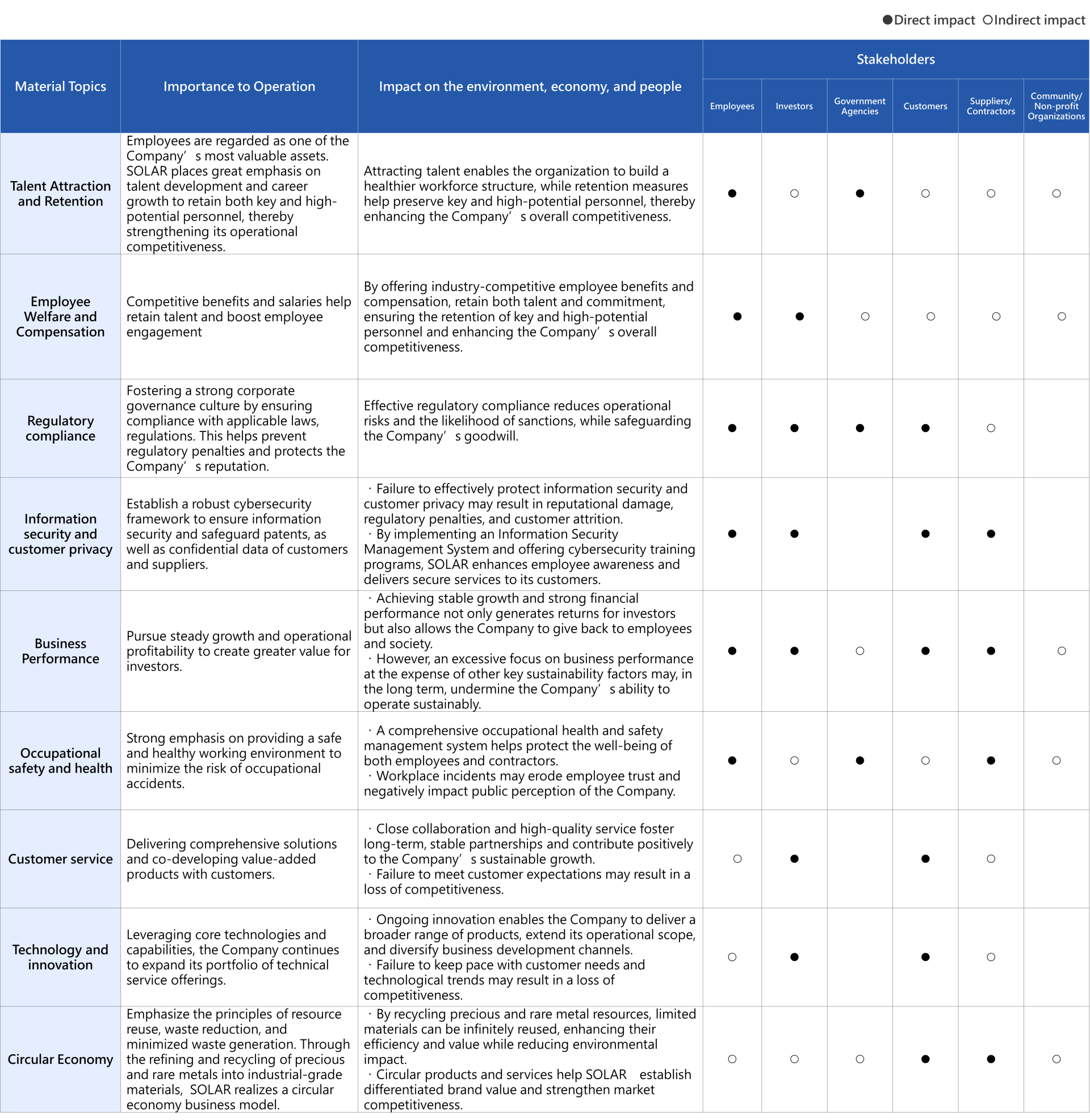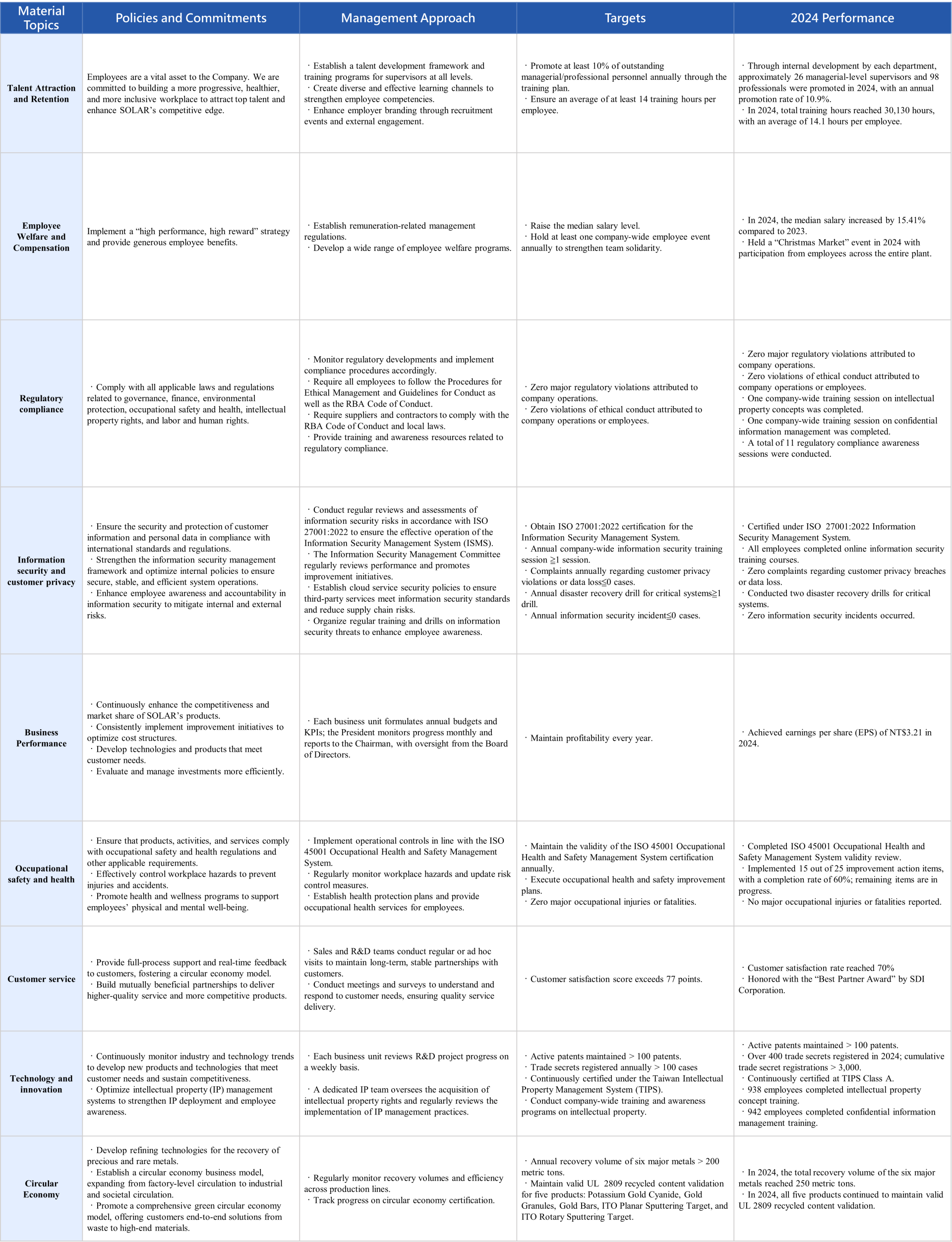Sustainable Operations
Message from the Chairman
Embracing Twin Transformations Toward a New Era of Sustainability
Amid escalating extreme weather and environmental challenges, carbon reduction and net-zero emissions have become shared global objectives. Following the Paris Agreement and resolutions from COP28, countries worldwide are accelerating energy transition and carbon neutrality plans, aiming to triple global renewable energy capacity and double energy efficiency by 2030. Carbon Border Adjustment Mechanism (CBAM) and stricter carbon regulations are being implemented across the EU, the US, and many Asian countries, profoundly impacting corporate trade and supply chain management. In Taiwan, preparatory measures for carbon fees officially commenced in 2024, encouraging companies to proactively reduce emissions and enhance global competitiveness. Although SOLAR is not currently classified as a major carbon emitter, the Company recognizes sustainability as a fundamental requirement for business continuity. We are actively committed to energy conservation and carbon reduction, taking concrete action to support global net-zero initiatives and secure long-term resilience and competitive advantage.
Deepening Net-Zero Transformation to Drive Operational Resilience
In response to international net-zero targets and intensifying climate challenges, SOLAR has continued to deepen and implement the digital and net-zero transformation plans initiated in 2022. These efforts have been further advanced in 2024, aligning proactively with international sustainability standards.
- SOLAR has expanded the scope of its carbon inventory beyond its own operations. Beginning in 2024, the Company extended its greenhouse gas inventory upstream to include Tier 1 domestic suppliers, conducting Scope 1 and Scope 2 emission surveys to collaboratively establish a green supply chain. In alignment with global carbon management trends, SOLAR is also closely monitoring international frameworks such as the Science-Based Targets initiative (SBTi) and responding to the Carbon Disclosure Project (CDP) questionnaire. These efforts are part of a strategic roadmap to align with international net-zero pathways and enhance competitiveness in global markets.
- In terms of resource recovery and product circularity, SOLAR continues to collaborate with clients on circular economy initiatives to recover precious and rare metals (gold, silver, platinum, palladium, ruthenium, indium, and gallium). These efforts help reduce high-carbon emissions associated with primary ore extraction and effectively assist clients in reducing their Scope 3 emissions. This not only embodies the principles of a circular economy but also creates shared carbon reduction value for customers.
- Driven by a strong commitment to energy transition, SOLAR continues to promote the installation of solar power systems at its plants. The Company aims to achieve an installed capacity of 5 MW by 2026, providing a stable and low-carbon energy supply for operations while reducing dependence on traditional fossil fuels.
Future Outlook: Co-Creating Sustainable Value
In 2024, amid intensifying global decarbonization pressure and rising international expectations for sustainability, SOLAR recognizes that continuous innovation and transformation are essential to ensuring long-term corporate resilience. Moving forward, we will strengthen collaboration with supply chain partners, customers, and other stakeholders, leveraging digital tools and international resources to not only reinforce internal carbon reduction efforts but also expand our external sustainability impact.
Sustainable development is a long-term and continuous commitment. SOLAR will remain steadfast in the belief that “Responsibility Creates the Future,” staying in step with global sustainability trends and striving to build a better world for future generations.

Organizational Structure of Sustainability
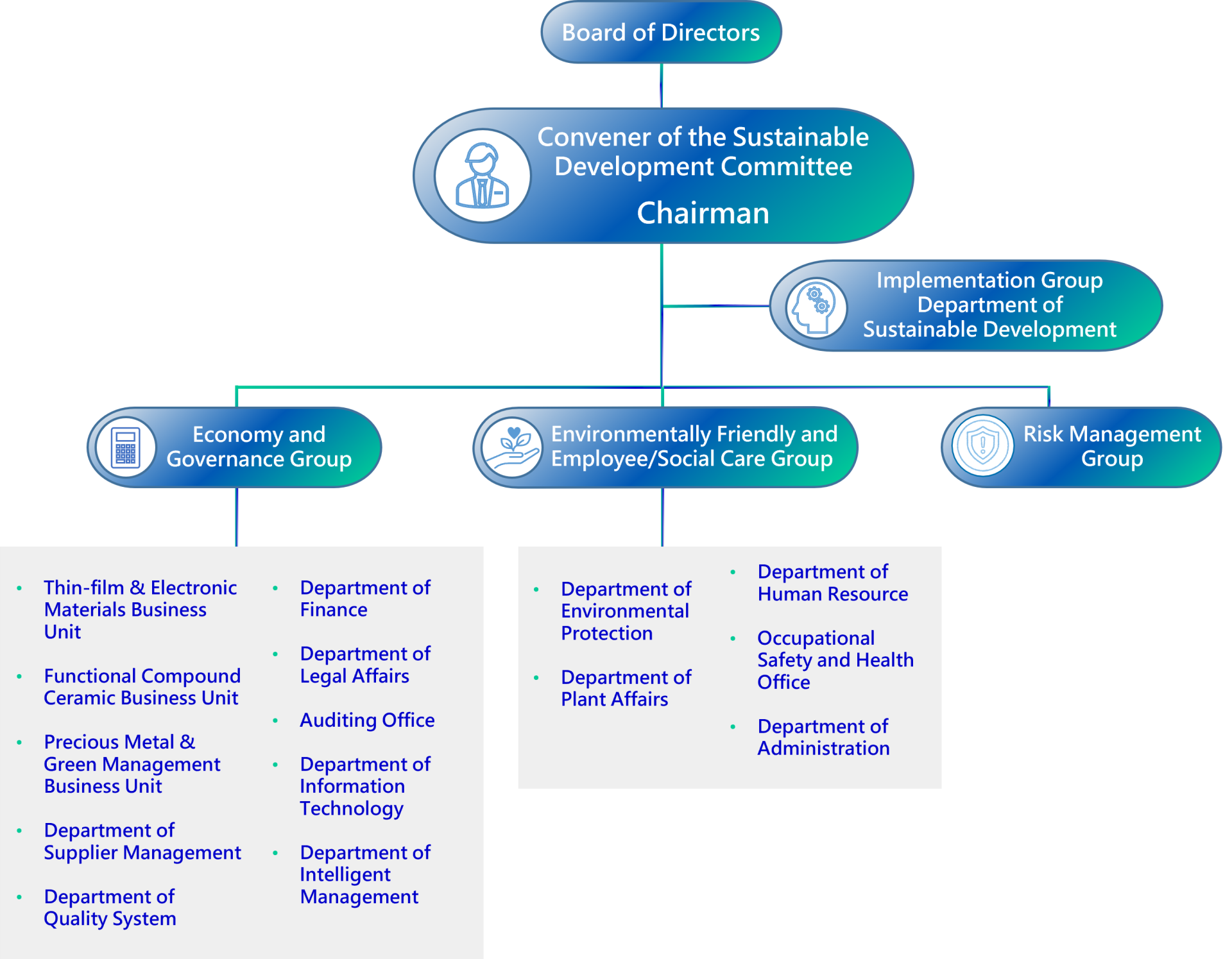
The Sustainable Development Committee aims to formulate strategic sustainability directions, establish annual sustainability policies and goals, and drive sustainable activities and projects regularly through regular meetings. annual sustainability policies and promote sustainability-related activities, Additionally, the Committee utilizes diverse and effective communication channels to understand the thoughts and needs of stakeholders. The Committee incorporates stakeholder concerns into its action guidelines, and actively promote and implement environmental, social, and governance issues in order to continuously fulfill its corporate citizenship responsibilities. In 2022, SOLAR established a dedicated sustainability unit to consolidate the progress of sustainability projects. The unit reports the annual sustainability key initiatives and project execution effectiveness to the Board of Directors on a regular basis. The Board of Directors plays a supervisory and guiding role in overseeing the progress and outcomes of the sustainability strategy.
Communication with Stakeholders
◆ SOLAR Sustainable Development Committee
Tel:
E-mail:service@solartech.com.tw
Main Topics of Concern and Communication Effectiveness of Stakeholders
Our definition of stakeholders is "internal and external groups or organizations which affect or are affected by SOLAR". The Sustainable Development Committee of SOLAR has identified six categories of stakeholders based on the context of sustainability, characteristics of the industry, and the practical experiences of SOLAR, and they are: shareholders, clients, employees, suppliers, government agencies, and community organizations. We further carefully examine the importance of stakeholders to SOLAR, gain an in-depth understanding of the main concerns and needs of these stakeholders, and communicate effectively with them through a variety of appropriate channels.
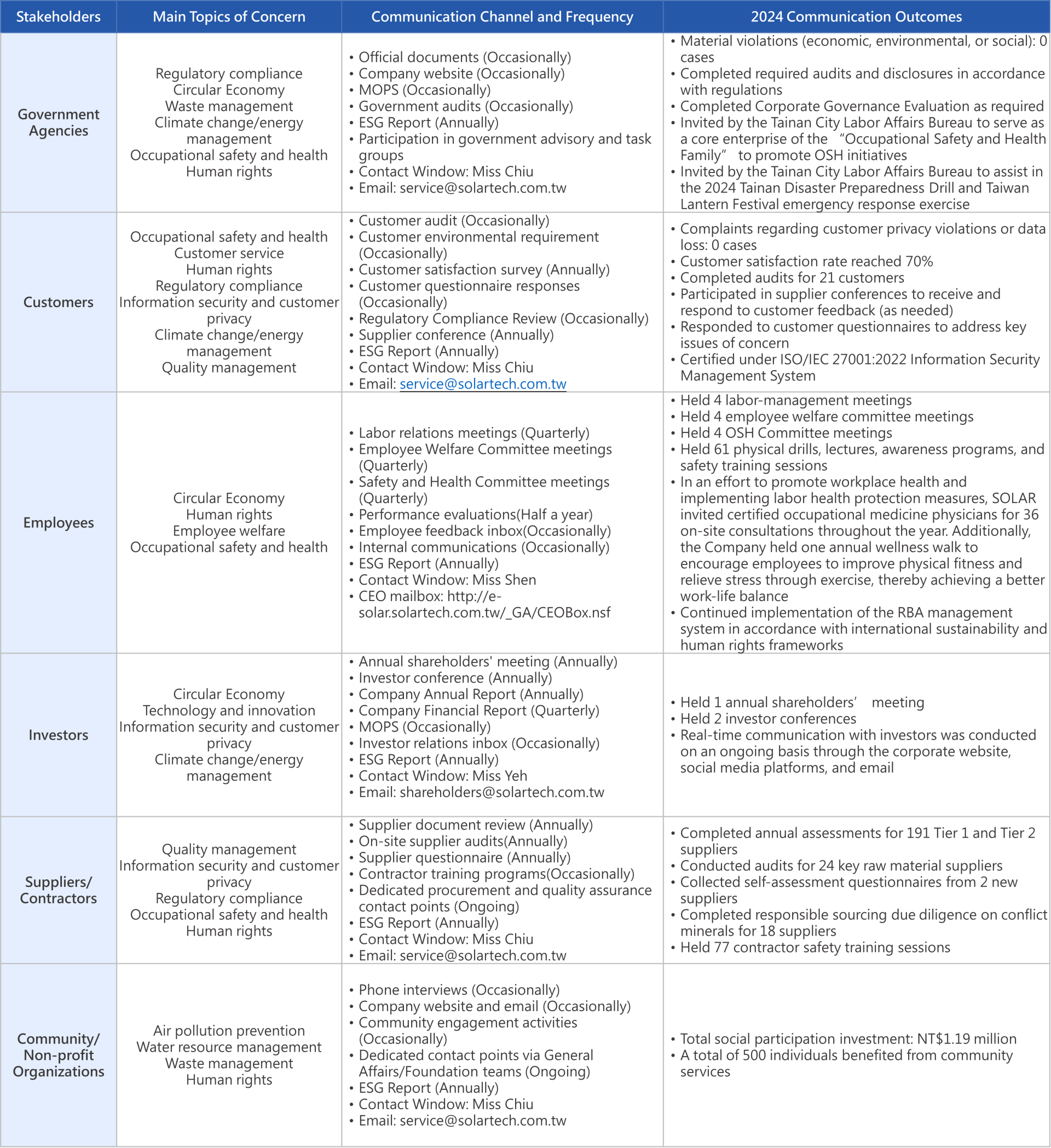
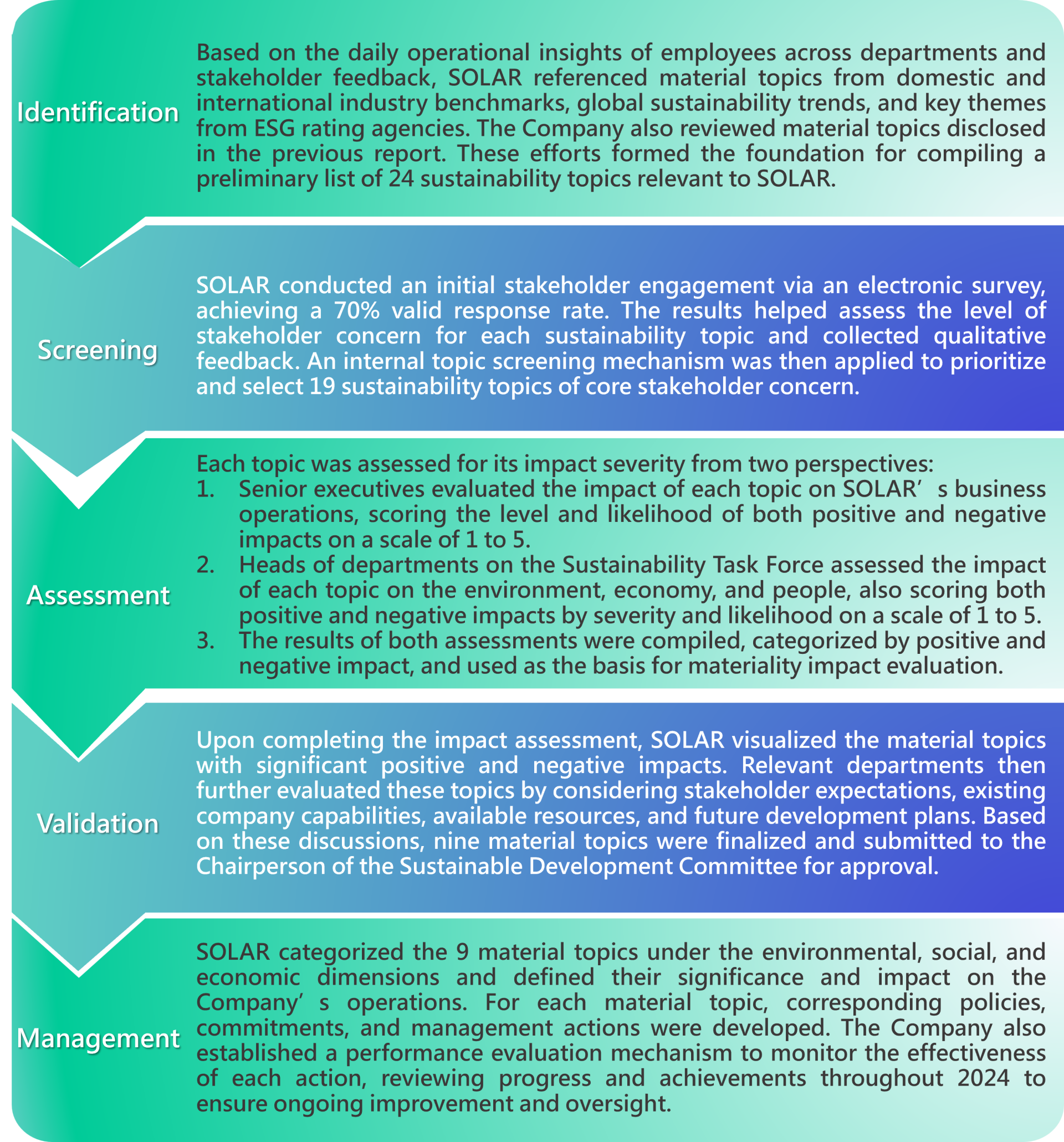
Process of Material Topics Analysis
The forthcoming questionnaire design will align with the double materiality principle, collecting evaluations from stakeholders on the following dimensions: the magnitude of the impact/effects of materials issues on society, the environment, and individuals, along with evaluations by the management regarding the impact/effects of material issues on operations. Furthermore, SOLAR has integrated significant sustainability issues with Enterprise Risk Management (ERM), identifying sustainability issues that may pose risks from an organizational resilience perspective and incorporating them into the sustainability management process.
Matrix of 2024 Material Topics Analysis Results
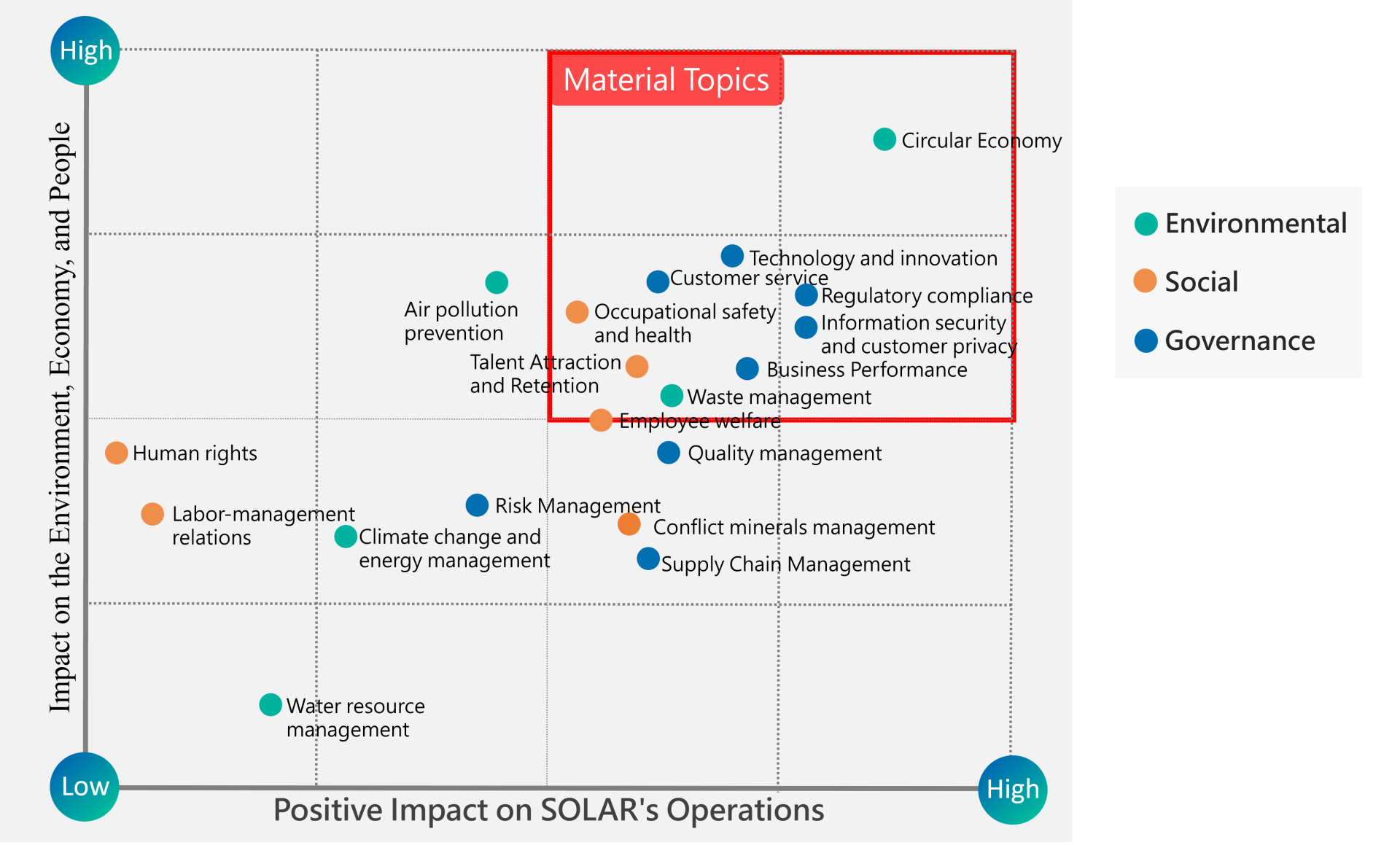

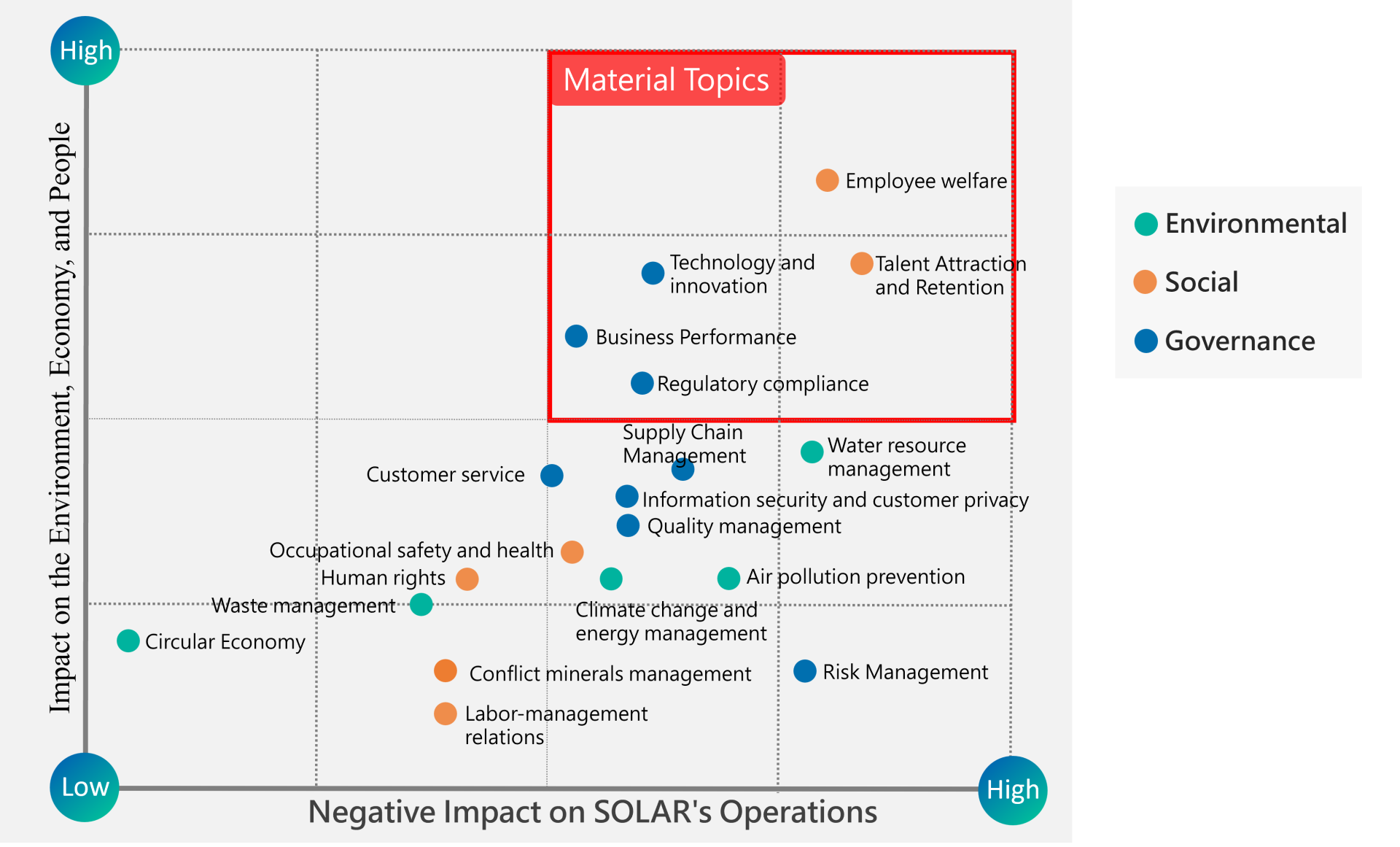
Impact Description and Scope of Material Topics
